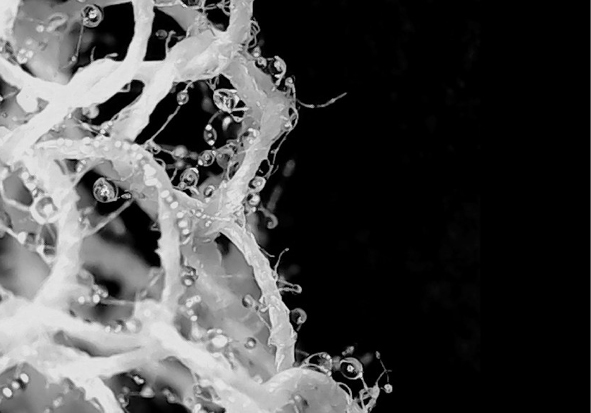Droplet-based Textile Microfluidics for High-Throughput Organoids Screening
Project objectives
The DROMOS project has received funding from the ANR to develop a laboratory-scale machine for testing large numbers of organic cells in a small quantity (by volume) under test.
This machine will be composed of several components, one of which is a textile structure with micro-fluidic channels. This textile structure will be considered as a consumable during the different measurements to be performed. Thus, particular attention will be given to identifying the means of production and the materials allowing a very good quality/price ratio in order to reduce the overall cost of the tests.

The micro-fluidic channels present within the textile structure will be produced by means of various approaches: either by extraction of the filaments or by dissolution or fusion of the filaments after impregnation with the resin. Different types of polymers will then be tested and spun on the spinning machine of the GEMTEX laboratory and different strategies for creating micro-fluidic channel imprints in the resin will be tested.
Subsequently, different architectures of woven structures will be designed and tested to validate the different organoid screening trials. Solutions will have to be found to improve the connectivity of the micro-fluidic woven structure with its environment. Adaptations to the weaving machine will be made to facilitate the integration of these different connectivity solutions while seeking to optimise production to achieve the objective of a low-cost impregnated textile solution.
Link to Quentin Watel thesis
Period : Oct 2020 / Mar 2024
Keywords : Mechanics of solids, materials, structures and surfaces –
Website : DROMOS ANR website
Partners : CHIP INSTITUT CURIE – SECT DE RECHERCHE PCC Unite physico-chimie Curie, UMR168 – INOREVIA
Ensait contact : François BOUSSU – Aurélie CAYLA – Fabien SALAUN

